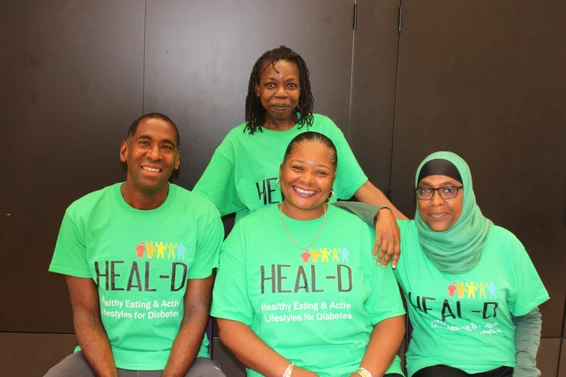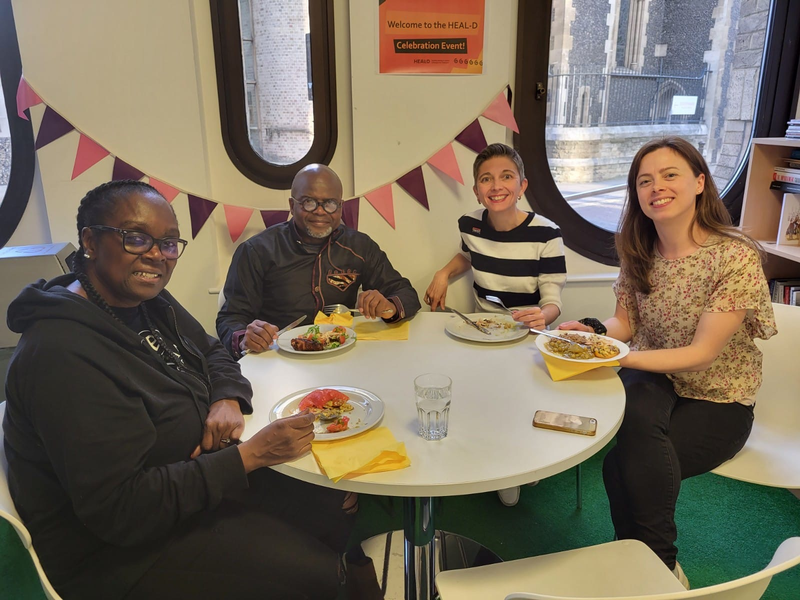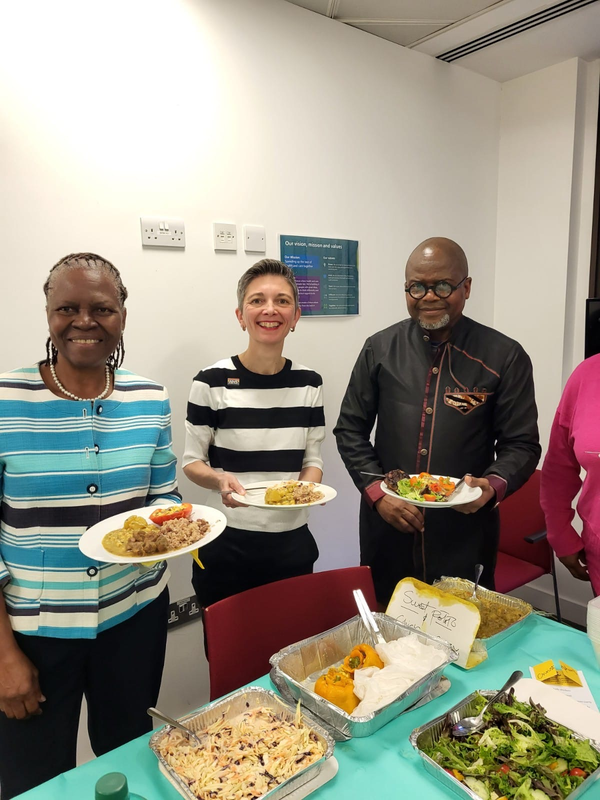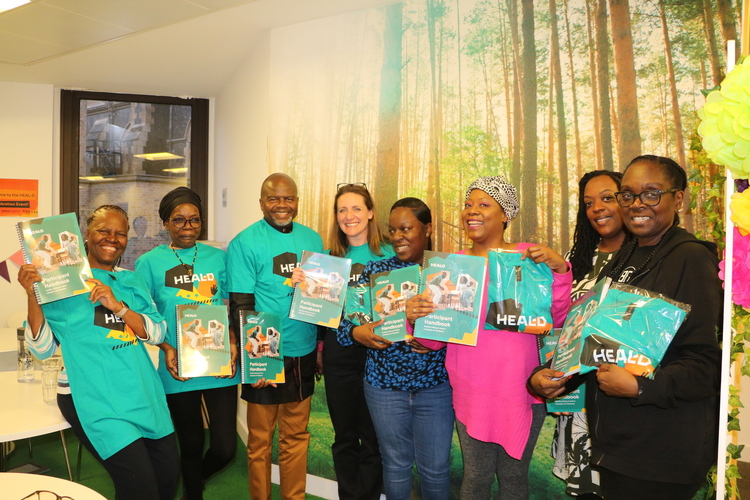Find Out More
For more information about HEAL-D visit the HEAL-D website or email info@heal-d.org
Find out more about HEAL-D
In the UK, people of African and Caribbean heritage are disproportionately affected by type 2 diabetes (T2D). Existing structured education courses, often offering generic advice (not tailored to different cultural groups), are less successful for people in minority ethnic groups, with worse outcomes, lower participation, and higher attrition. The importance of effective T2D management was reinforced through the pandemic as the impact of Covid-19 was disproportionately affecting people with diabetes and from minority ethnic groups.
That’s why providing accessible, culturally sensitive diabetes education is a priority.
“I thought it was just a generic program where things would just go over your head…but then the way it was tailored and presented, it had a great impact”HEAL-D participant
Healthy Eating & Active Lifestyles for Diabetes (‘HEAL-D’) is a culturally tailored T2D self-management programme. It was developed, to address inequalities in T2D structured education attendance and outcomes among adults of African and Caribbean heritage and to be sensitive to the needs of the NHS and people living with T2D. It aims to help people achieve diet and lifestyle goals by supporting and motivating the development of self-management skills.
HEAL-D was co-designed in partnership with key stakeholders to ensure appropriate cultural tailoring and acceptability for people with diabetes and healthcare practitioners. It was designed in collaboration with members of the African and Caribbean communities of south London. Initially delivered face-to-face, HEAL-D has been further developed to enable online delivery via videoconferencing technology, known as ‘HEAL-D Online’.
Find out more about HEAL-D here or email info@heal-d.org
The NHS Insights Prioritisation Programme (NIPP) was established to accelerate the implementation and evaluation of innovation that supports post-pandemic ways of working in England. The provision of bespoke diabetes education, tailored to meet socio-cultural needs, points to a more cost-effective, community-centred approach to improving long-term diabetes outcomes and tackling health inequalities.
The NIPP project in south London provided the opportunity for collaboration between the HIN, the National Institute of Health and Care Research (NIHR) Applied Research Collaborative (ARC) and Louise Goff (HEAL-D Chief Investigator, Leicester Diabetes Centre) to evaluate the feasibility and acceptability of HEAL-D Online across south London and explore potential scale.
Our project had two workstreams:
An evaluation to explore (1) the feasibility and acceptability of a virtual model of delivery for HEAL-D in south London and (2) the factors affecting its scale-up across other areas in England.
View the Peer-reviewed evaluation protocol published in the BMJ Open
View the mixed methods evaluation exploring the feasibility of implementing HEAL-D Online, published in the BMJ Open
Exploring the potential for scale of HEAL-D Online by preparing key resources and engaging with areas outside south London to raise awareness, learn about potential commissioning and operating models and examine how HEAL-D Online may be an effective solution in areas with differing populations and geographies.
The NIPP project has provided crucial evidence to support further local commissioning and inform further research to examine the clinical effectiveness of HEAL-D and HEAL-D Online.
The HEAL-D programme is featured in the main report of the NHS Insights Prioritisation Programme. This report details the outcomes and learnings on how the programme has addressed health inequalities for people of African and Caribbean heritage with type 2 diabetes. In this report, you can also learn about other NIPP projects from other areas of England.
A much deeper dive into our NIPP project can be found in a dedicated NIPP project report here, which covers the programme's findings, outcomes, and next stages.
In the 2nd episode of the NHS Insights Prioritisation Programme (NIPP) podcast, Implementation and Involvement Manager Sophie Lowry was featured alongside Sandra Tomlinson, a community facilitator in the HEAL-D programme, discussing the role NHS NIPP has played in evaluating and scaling up the HEAL-D programme.
You can learn about other HIN/ARC collaborations and NIPP projects here
Co-production and collaboration continued through the NIPP project, from the project planning stage to an end of project celebration event. We recruited previous HEAL-D participants to sit on a reference group and made key decisions with this group. This included the redesign of a post-course questionnaire, materials for evaluation including service user interview questions, and review of resources and branding.
We also held interviews with HEAL-D participants and a working group and focus groups to gather insights from the wider target population, recruited through outreach into the community, including attending a local church event and through community organisations with existing, trusted relationships with their local populations.
Find out how one of our Experts by Experience from our reference group found the experience
See our blog for more information about our involvement activities.
“I learnt so much. After joining this course I am more committed to managing my diabetes”HEAL-D participant
For more information on evaluation contact Sophie Lowry.
For more information on scale-up contact Sally Irwin.

In May we held a celebration to say thank you to the members of the project reference group for their expertise and involvement with the NIPP project and to share the outcome of the work.
It was an opportunity to come together to chat, share some delicious food and reflect on the fantastic work that had been done together.


For more information about HEAL-D visit the HEAL-D website or email info@heal-d.org
Find out more about HEAL-D